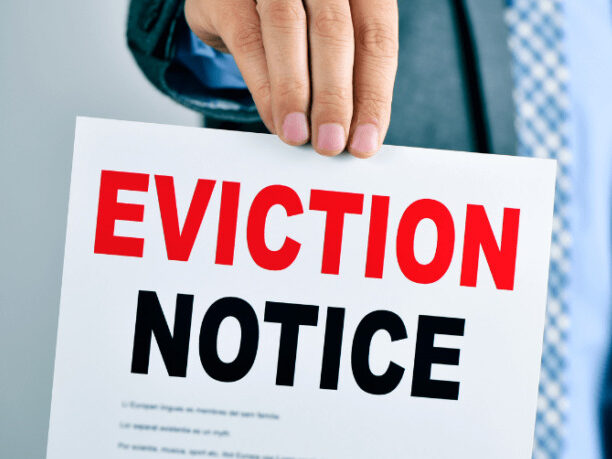
Exploring the Timeline and Factors Behind Eviction Delays
Are you a landlord facing the frustration of a prolonged eviction process? If so, you’re not alone. In the Commonwealth of Massachusetts, the eviction timeline can sometimes be a source of confusion and concern for landlords. In this blog post, we’ll delve into the intricacies of eviction proceedings, shedding light on why evictions may take longer than expected.
Understanding the Eviction Process
Every eviction case is unique, but there’s a general timeline that the courts follow to complete the eviction process. It’s essential to note that this timeline doesn’t account for exceptional cases, such as continuances or appeals, which can further extend the process due to tenant or attorney tactics.
As an experienced eviction attorney from the Law Office of Jesse Bousquet, Jr., Esq., specializing in handling numerous eviction cases each year, we often receive questions about the Massachusetts eviction process. Landlords wonder about the duration and complexities involved. The reality is that Massachusetts law provides tenants with various rights, even when they stop paying rent or violate lease agreements. While this can be challenging for landlords, it’s essential to work within the legal framework that respects tenant rights.
Key Steps in the Eviction Process
1. Notice to Quit: Before initiating any eviction case in court, a landlord must serve the tenant with a 14-Day Notice to Quit for non-payment of rent or a 30-Day Notice to Terminate for cause. In some cases, a 30-Day Notice to Terminate for possession only, without cause, may be served.
2. COVID Impact: Post-COVID, if non-payment of rent is the reason for eviction, tenants are entitled to rental assistance to clear arrearages. In many non-payment situations, landlords have limited options to proceed with eviction if the tenant fully complies. However, for-cause evictions often provide a different scenario.
3. Summary Process Complaint and Summons: Once the tenant is served with the appropriate notice and the notice period elapses (14 or 30 days), a Constable can serve a Summary Process Complaint and Summons on the Tenant. The tenant receives 7-10 days’ notice before the case can be filed with the Court electronically.
4. Court Scheduling Changes: Previously, landlords’ attorneys could select the hearing date for cases filed, and they often proceeded quickly (hence the name Summary Process). However, since the COVID era, the Court now determines the date, resulting in potential delays of a month or more.
Eviction Tiers
The eviction cases are now organized into two Tiers:
Tier 1: This involves a Housing Specialist Status conference or Case Management Conference. Parties attempt mediation to reach an agreement to resolve the case. If no settlement occurs, the case proceeds to trial or a pretrial conference if the tenant demands a Jury Trial.
Tier 2: Here, a judge may schedule a motion to continue for some reason (such as a pending rental assistance application), status hearing, or bench trial. The Tier 2 event could be scheduled as soon as two weeks after a failed Tier 1 event depending on the particular court the case is in. If the tenant hasn’t filed an Answer with a jury demand, the Tier 2 event is the trial date.
Resolution and Agreements
The resolution of eviction cases typically occurs through agreements between the parties or after a trial. In my experience, over 90% of eviction cases find resolution through agreements, offering a more predictable outcome.
Post-Agreement Procedures
If an Agreement for Judgment is reached, granting possession and rent owed to the landlord, the tenant must comply with the agreement’s terms. If not, the landlord can request an Execution from the court, seeking permission to remove the tenant from the premises.
Execution and Eviction
Upon the court’s issuance of an Execution for possession, the Sheriff/Constable can serve the tenant, allowing 48 hours to vacate the premises. The Sheriff/Constable can then carry out the eviction no sooner than 48 hours after serving the notice. Tenants may file Motions to Stay, potentially further delaying the repossession, depending on court considerations.
Understanding the Timeline
While this overview provides a glimpse into the eviction process, it’s important to acknowledge that timelines can vary. Court delays, scheduling challenges, and tenant litigation strategies can extend the eviction process, potentially taking up to a year or more in extreme cases. On average, the process typically lasts 4-6 months, but specific circumstances may prolong it.
Conclusion
Navigating the eviction process in Massachusetts can be a complex journey. While it’s understandable that landlords seek to protect their investments and regain possession promptly, it’s crucial to operate within the legal boundaries set by the law and court procedures. Rest assured, we’ll leverage our experience and expertise to expedite the process wherever possible.
Feel free to reach out if you have any questions or require further clarification on any aspect discussed in this letter. We’re here to assist you through every step of the eviction process.
Disclaimer: This blog post serves as general guidance and does not constitute legal advice. For specific legal counsel on your eviction case, please consult the law office of Jesse Bousquet, Jr., Esq..
